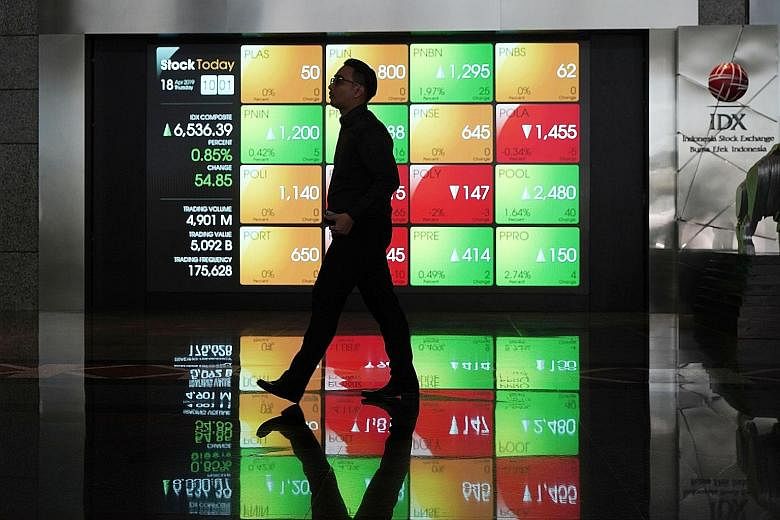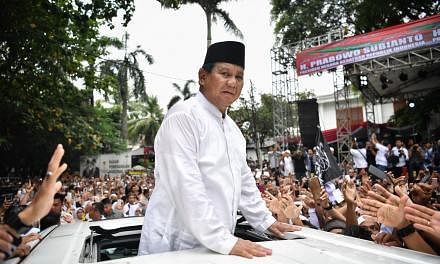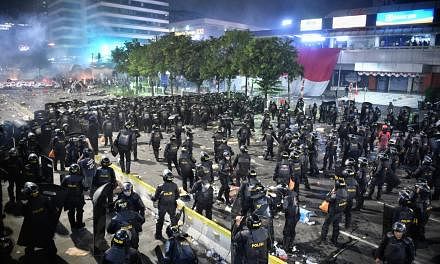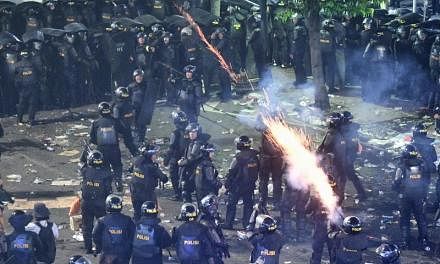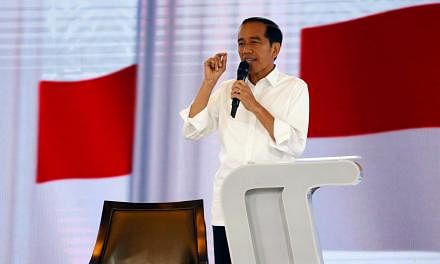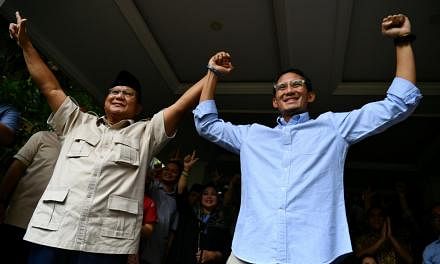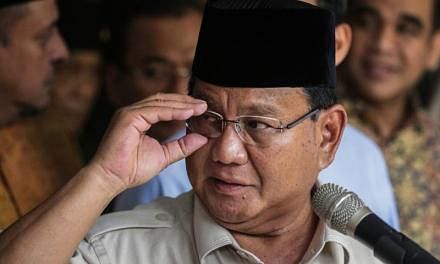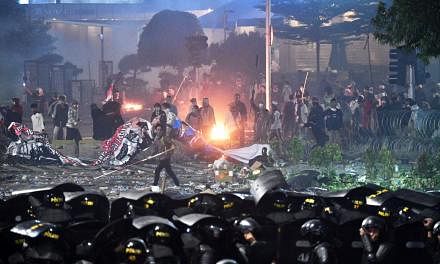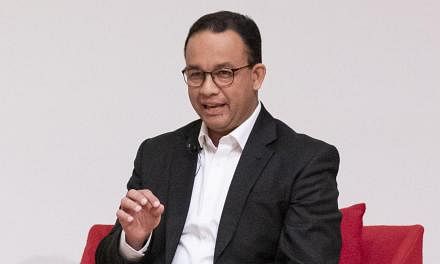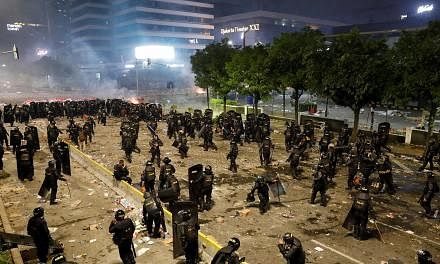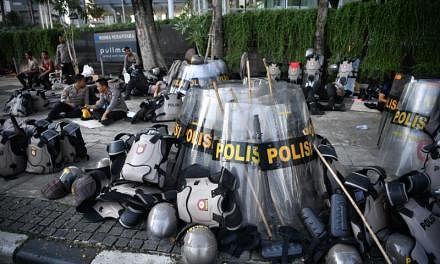Indonesian election officials have said the final tally of last week's presidential election will not be known until next month. In the interim, both incumbent President Joko Widodo and his opponent Prabowo Subianto have declared victory in the April 17 polls.
Unofficial quick counts, however, show Mr Joko has bested his opponent by nine percentage points. A final tally is expected late next month.
So far, Indonesia's rupiah and share market have weathered the election campaign, extending modest gains so far this year.
The performance underscores the confidence in Indonesia's ability to adjudicate free and fair elections as well as expectations that Mr Joko, widely known as Jokowi, will eventually prevail.
"As long as there is no serious risk of Mr Prabowo actually assuming the presidency, investors won't panic until Mr Joko's victory is confirmed," said Mr Peter Mumford, who heads South-east Asia coverage for business risk consultancy Eurasia Group in Singapore.
The Jakarta Stock Exchange ticked up past 6,500 points in trading after election day. The bourse has gained more than 5 per cent since January, while the rupiah has gained 3 per cent so far this year. Markets were closed for the Good Friday holiday.
Market and currency gains were modest following the vote because Mr Joko was widely expected to prevail, said Mr Harry Su, head of equity capital markets at investment firm Samuel International. For now, the biggest priority is keeping the peace, he said.
Given Mr Joko's comfortable margin in the quick counts, Mr Prabowo's fiery rhetoric against pollsters and allegations of fraud seem to lack substance.
"I would be much more concerned if the result had been closer, in which case Prabowo's allegations of voter fraud and irregularity could potentially make a difference in a more contested result," Mr Mumford said.
To be sure, investors have seen all of this before. Mr Prabowo refused to concede for six weeks following the July 2014 contest, yielding only when the Constitutional Court unanimously ruled against his claims of voter fraud.
Support for Mr Prabowo, though, is shaky. Islamic leaders joined him at his home on Friday but former president Susilo Bambang Yudhoyono, an occasional ally, has kept his distance.
The risk is that Mr Prabowo paints himself into a corner. Support might evaporate even before he concedes, said one major business leader who did not want to be identified.
Whatever happens, two decades after the ouster of former president Suharto, the country's democratic norms are well established, said managing director Douglas Ramage of business risk consultancy BowerGroupAsia.
"Indonesia's processes and institutions that adjudicate election challenges are seen as tested, well institutionalised, and expected to rule fairly on any challenge that is brought before them," he said.
